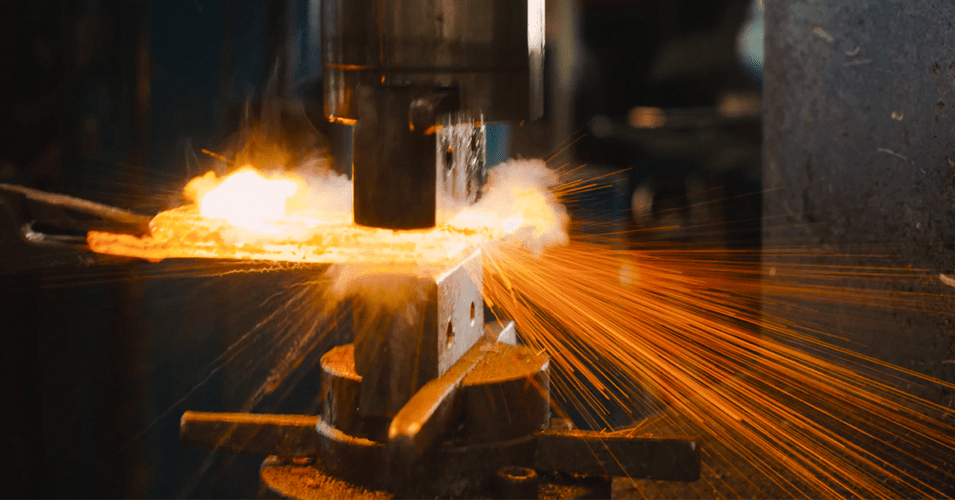Forging is an ancient and indispensable manufacturing process that has been employed for centuries to shape metal into useful and intricate forms. Among the various forging techniques, hot forging stands out as a method capable of creating complex shapes with remarkable precision. In this blog, we’ll delve into the world of precision forging, exploring how this process utilizes high temperatures to craft intricate components and its significance across various industries.
The Basics of Hot Forging
Hot forging is a metalworking process that involves heating a metal to a high temperature, typically between 1,100°C and 1,250°C (2,012°F and 2,282°F), to make it more malleable. This heated metal is then subjected to mechanical force, typically through the use of a press or hammer, to shape it into the desired form. The precision aspect comes into play through careful control of the heating, shaping, and cooling processes.
Creating Complex Shapes
The hallmark of precision forging is its ability to create complex and detailed shapes that may be challenging to achieve using other manufacturing methods. Here’s how precision forging achieves this:
- Design Flexibility: Precision forging allows engineers and designers greater freedom when it comes to creating intricate components. The heated metal can be precisely shaped, resulting in components with complex geometries, tight tolerances, and fine details.
- Minimal Material Waste: Unlike traditional machining methods where excess material is removed, precision forging is a near-net-shape process. This means that there is minimal material waste, making it both cost-effective and sustainable.
- Consistent Quality: Precision forging provides consistent results, ensuring that each component produced adheres to the exact specifications. This uniformity is crucial in industries where safety and reliability are paramount.
- Enhanced Mechanical Properties: The controlled heating and deformation in precision forging lead to improved mechanical properties of the final product. This includes increased strength, better fatigue resistance, and enhanced structural integrity.
Applications of Precision Forging
Precision forging is widely used across various industries due to its ability to create intricate and high-quality components. Here are some notable applications:
- Aerospace: The aerospace industry relies heavily on precision forging for critical components like turbine blades, landing gear, and engine parts. These components demand exceptional strength, heat resistance, and precision, all of which precision forging provides.
- Automotive: In the automotive sector, precision forging is utilized for creating components such as connecting rods, crankshafts, and transmission gears. These components require precision to ensure engine efficiency and longevity.
- Medical Devices: Precision forging plays a crucial role in manufacturing medical instruments and devices where accuracy and reliability are paramount. Surgical instruments, implants, and prosthetic components are often produced through precision forging.
- Energy Generation: Power generation industries, including nuclear and renewable energy, rely on precision forging for the production of components like steam turbine blades and wind turbine shafts. These components must withstand extreme conditions and maintain efficiency.
Challenges in Precision Forging
While precision forging offers numerous benefits, it also comes with its set of challenges:
- High Equipment Costs: Setting up precision forging facilities can be expensive due to the need for specialized machinery and advanced control systems.
- Material Selection: The success of precision forging often depends on selecting the right material with suitable metallurgical properties.
- Process Control: Maintaining precise control over temperature, pressure, and deformation is critical. Deviations from the desired parameters can result in defects.
Conclusion
Precision forging is a remarkable manufacturing process that combines high temperatures, mechanical force, and meticulous control to create complex shapes with exceptional accuracy. It is a critical technique in various industries, enabling the production of components that meet strict performance and quality standards. As technology continues to advance, precision forging will likely play an even more significant role in shaping the future of manufacturing, allowing us to build more efficient and reliable products.
